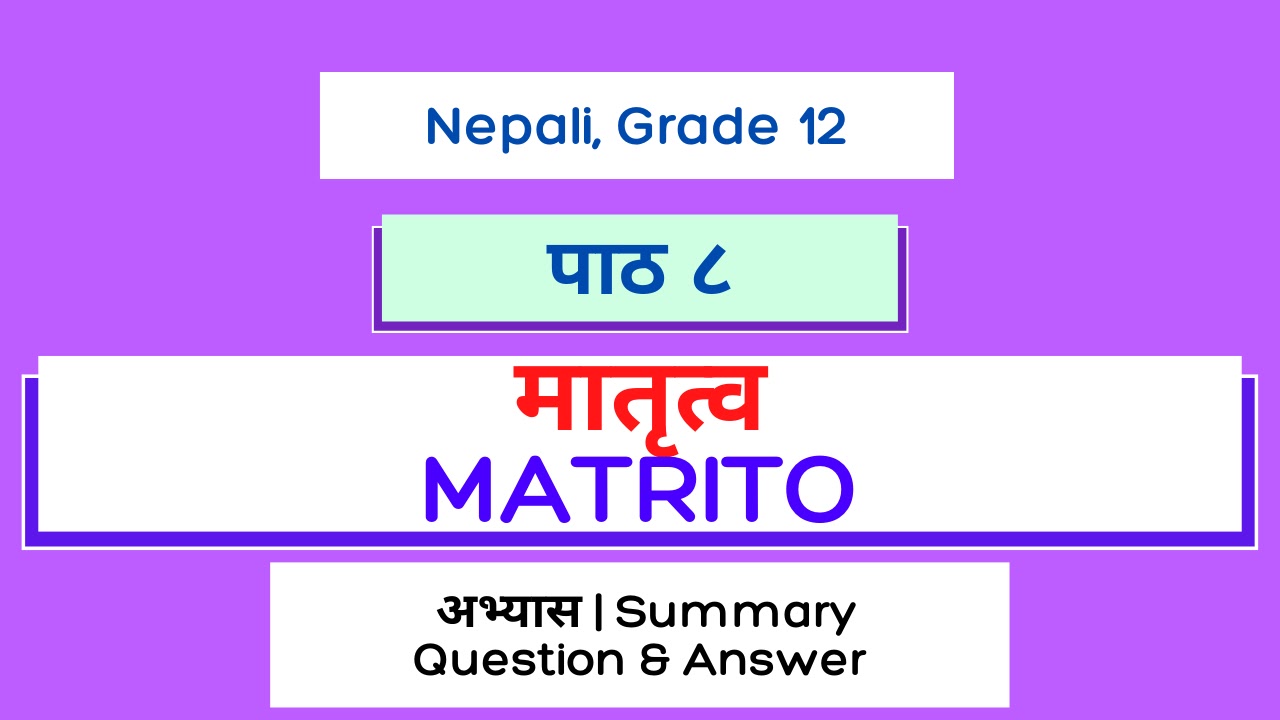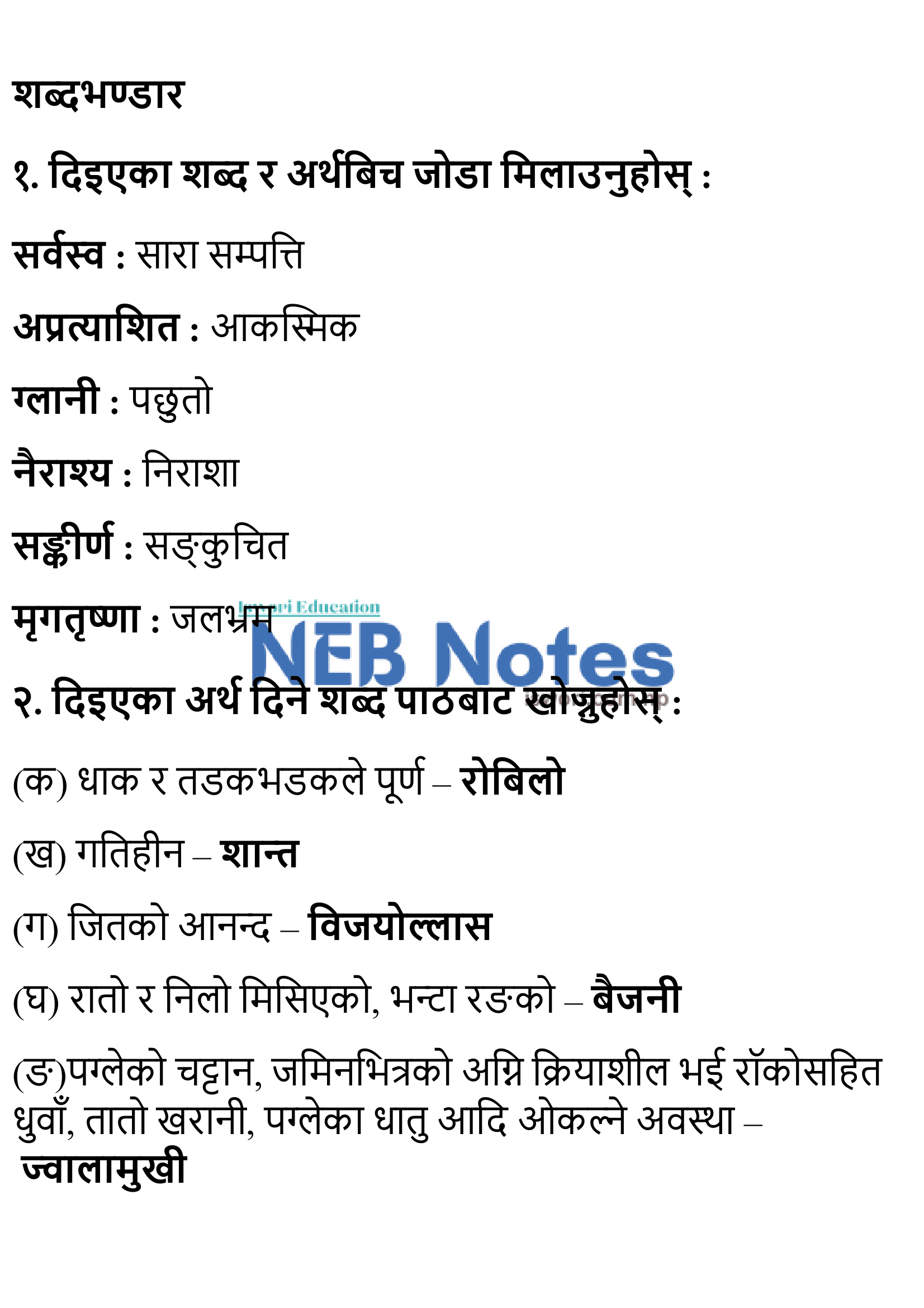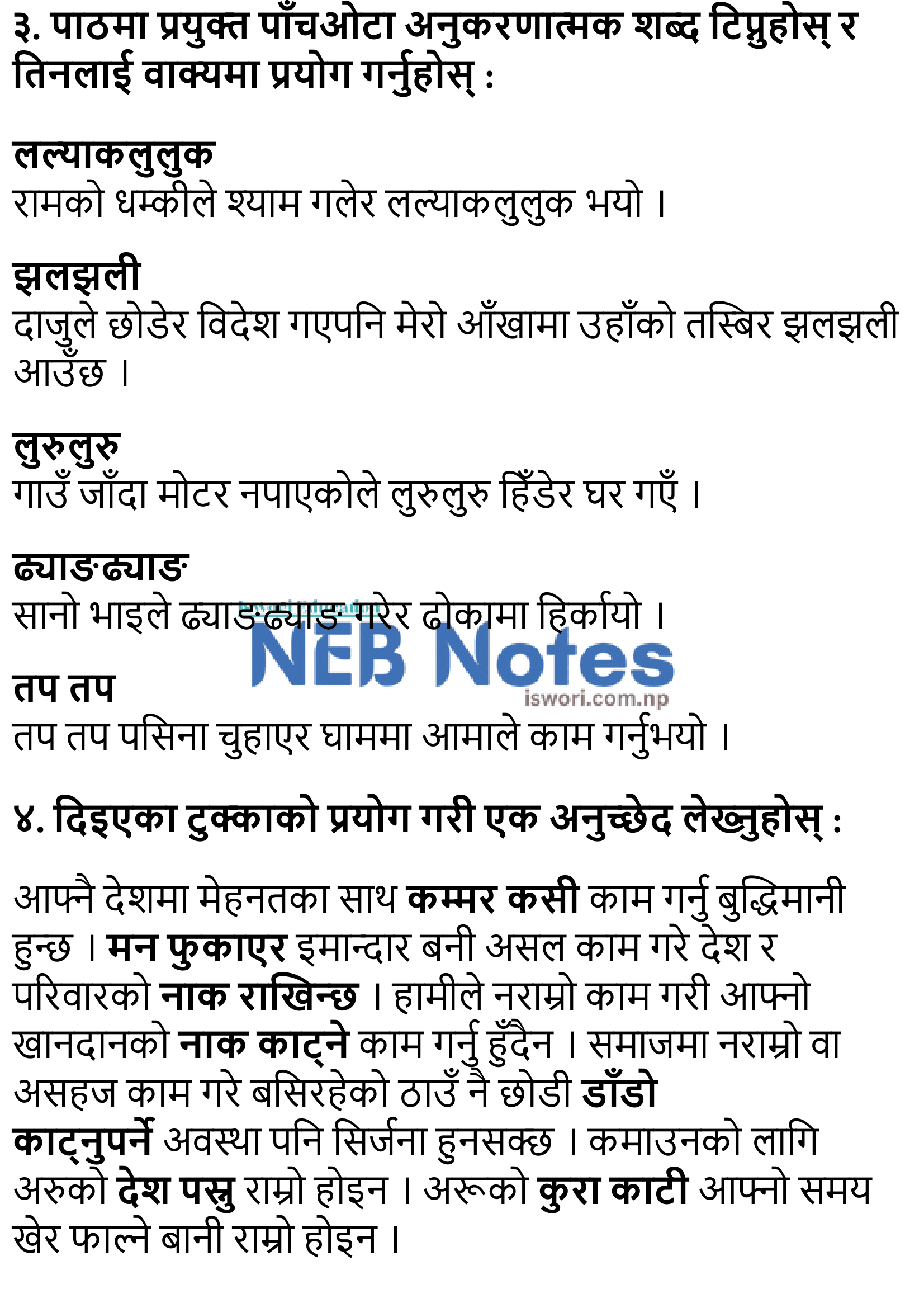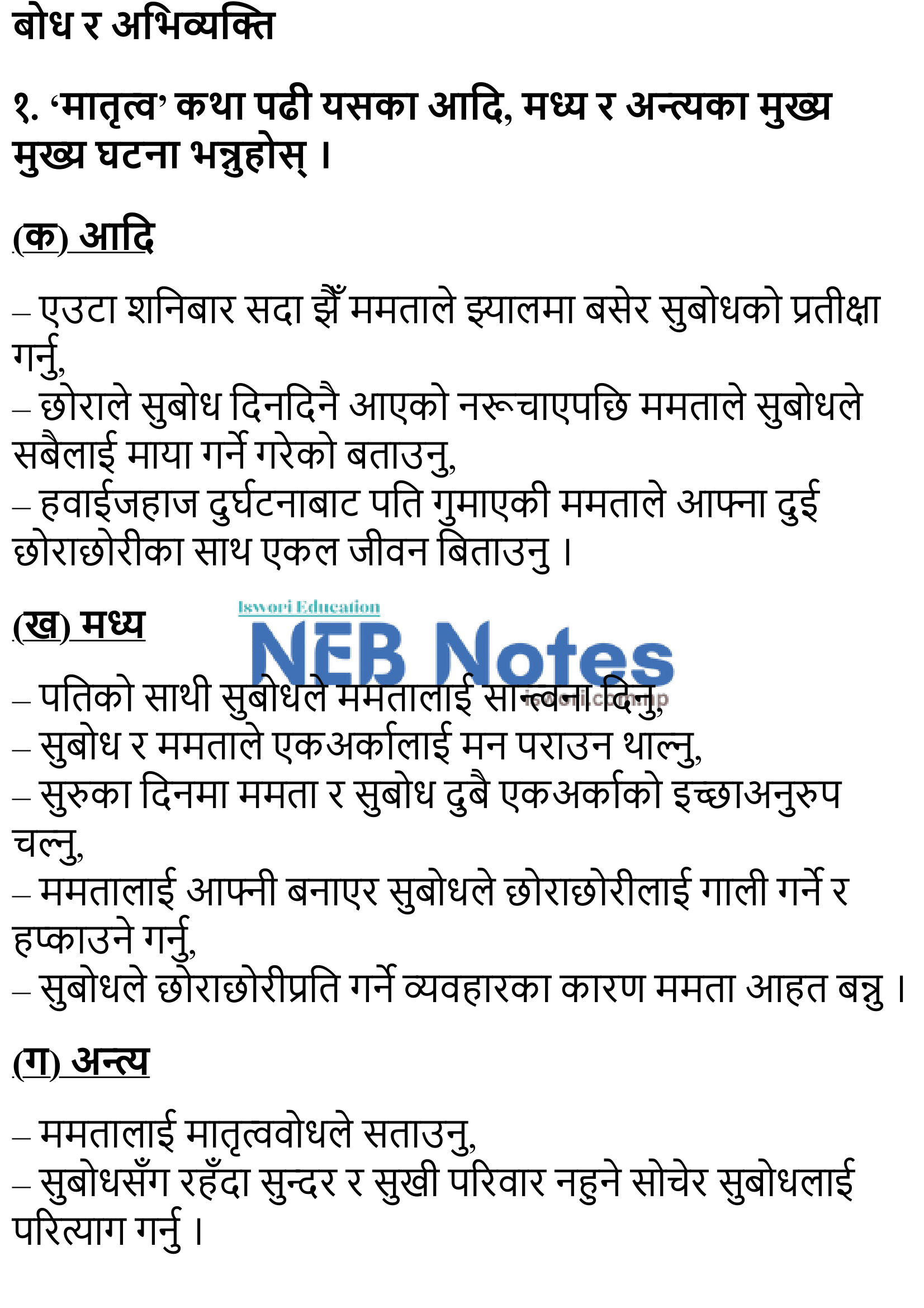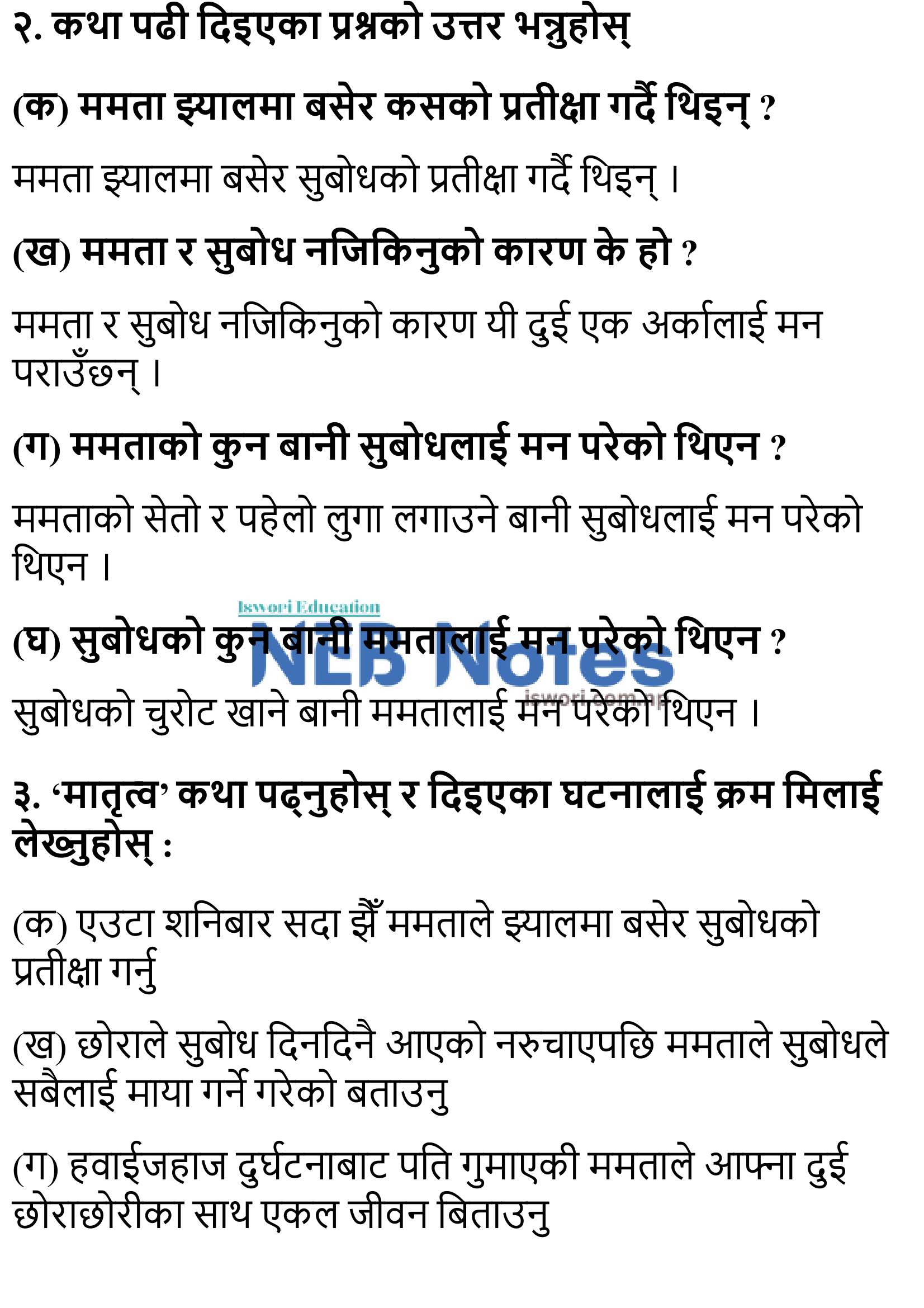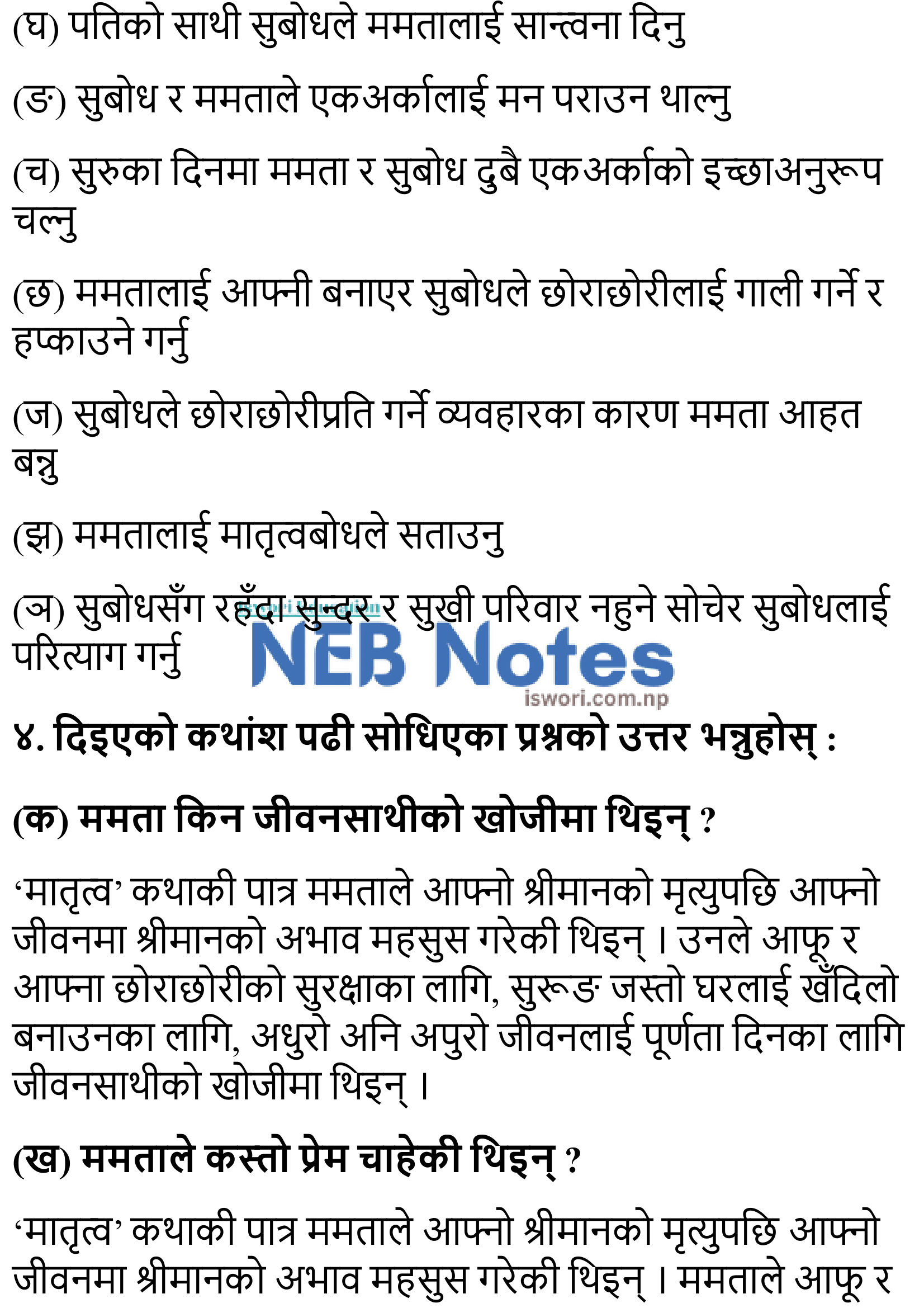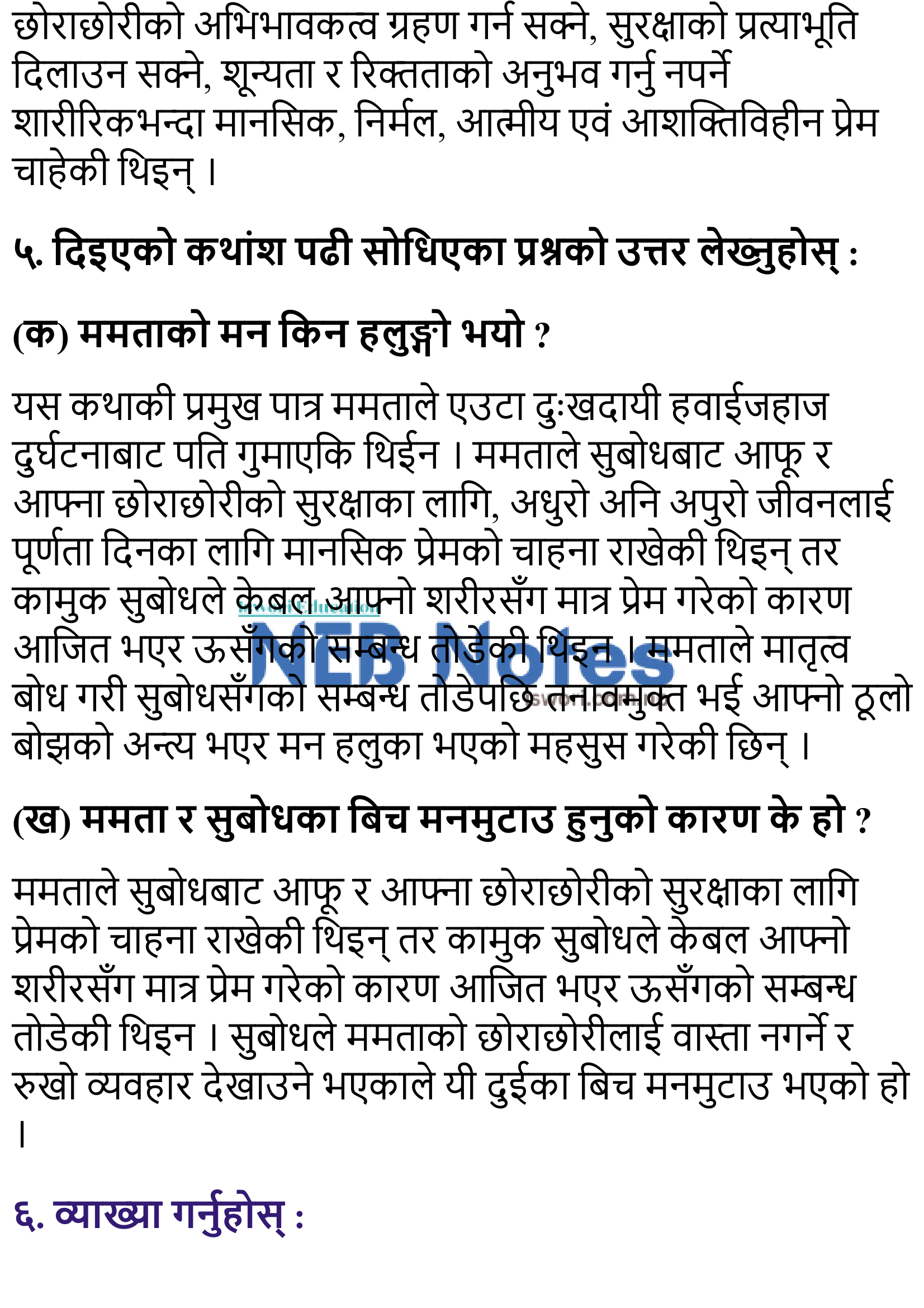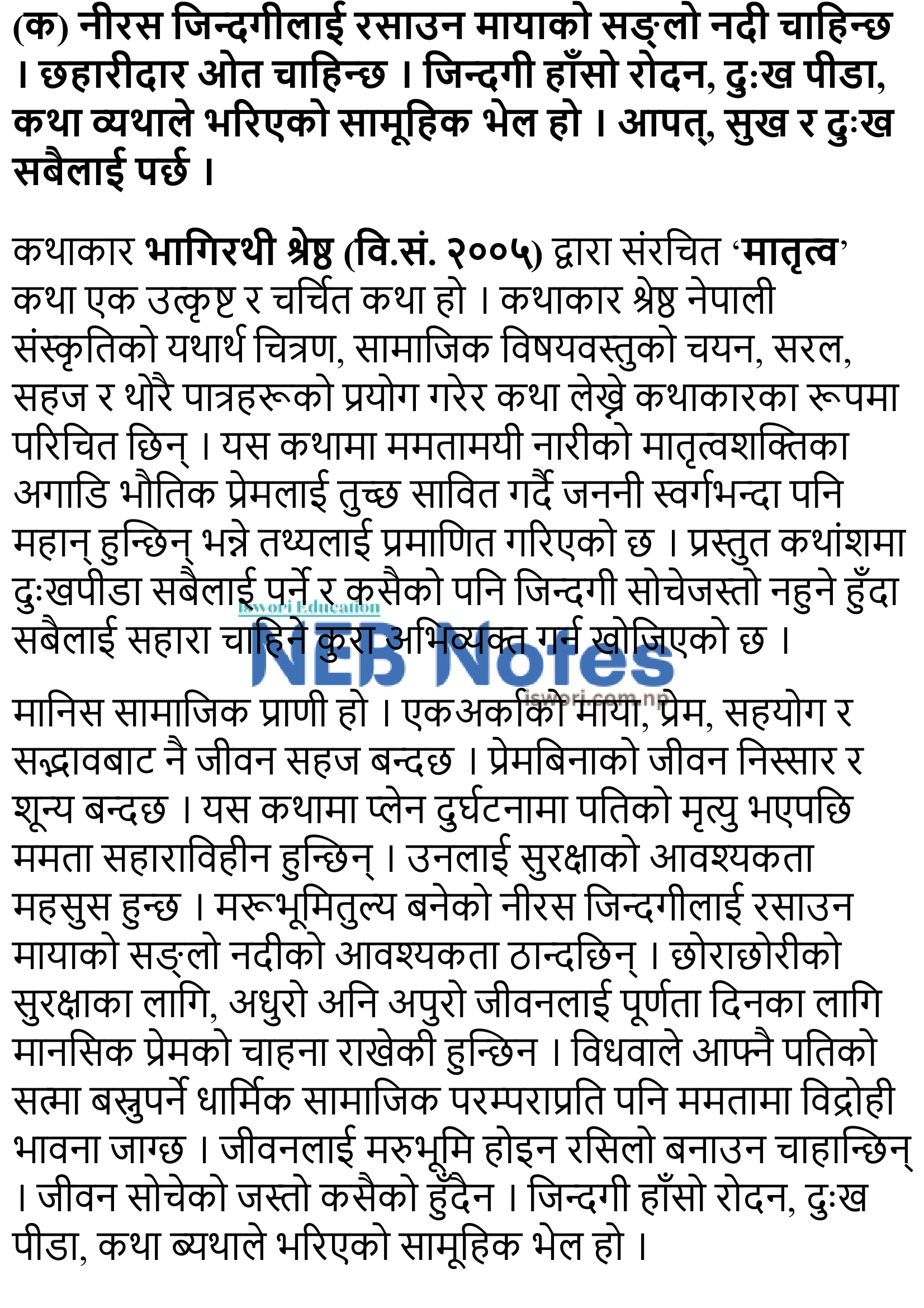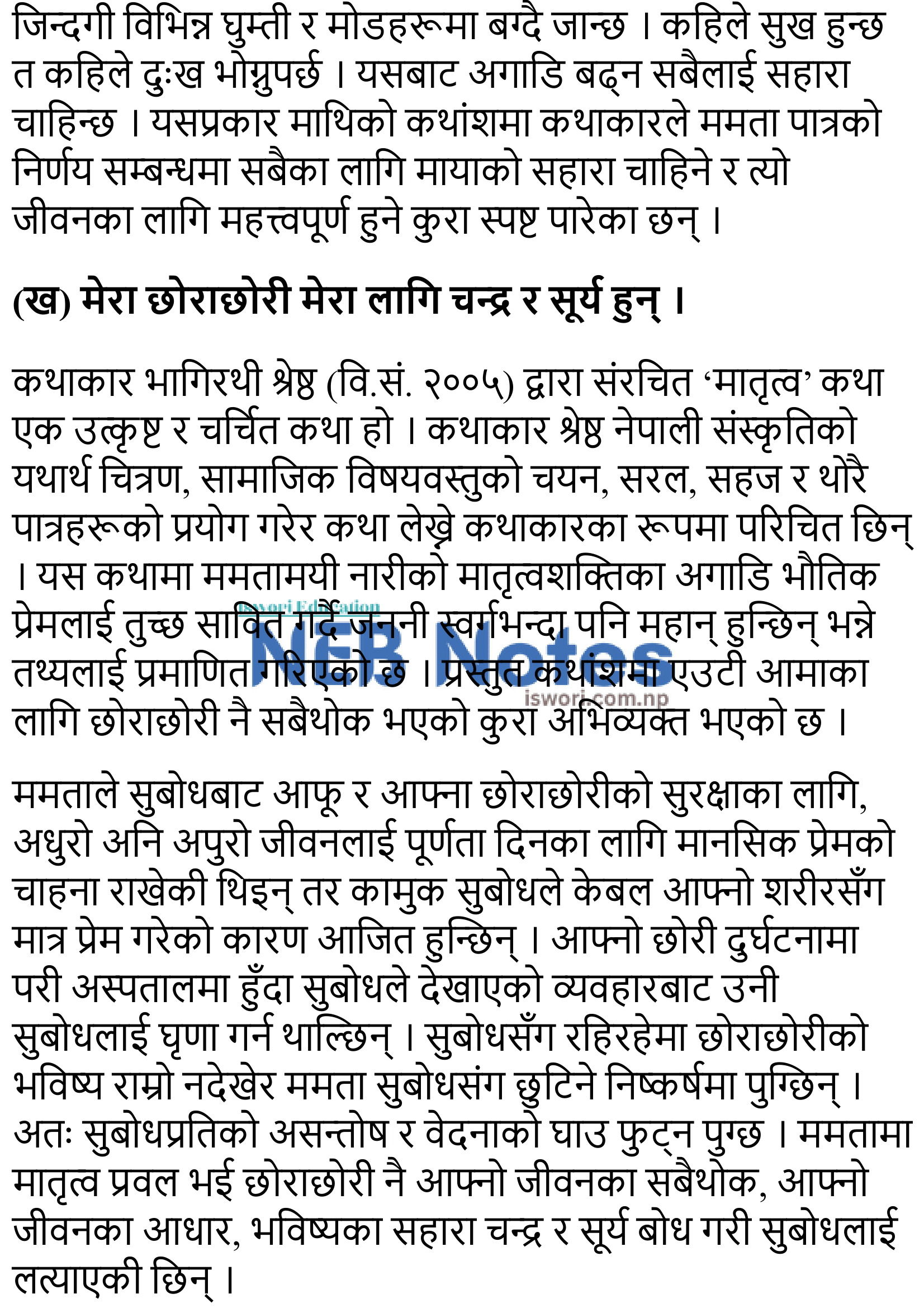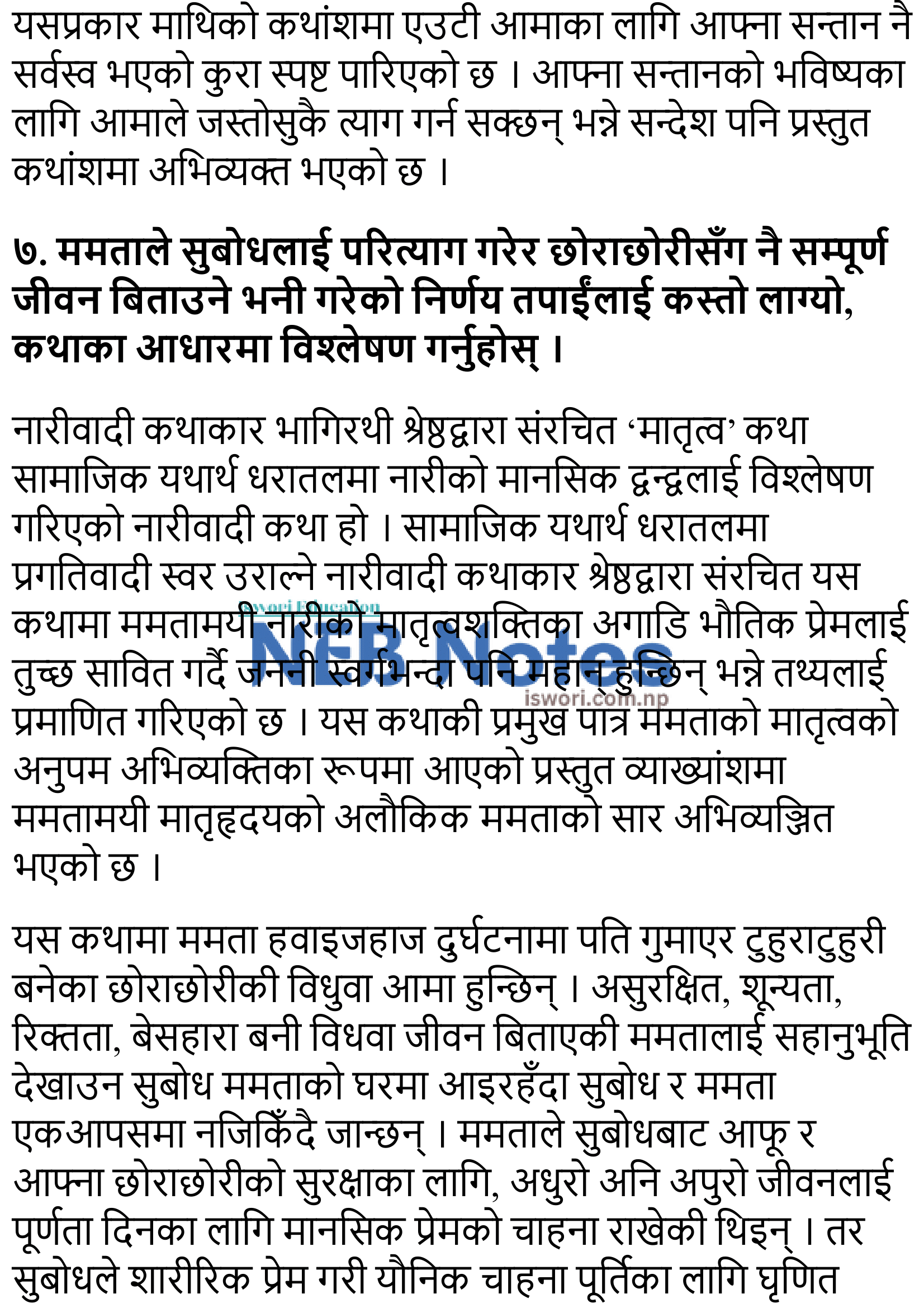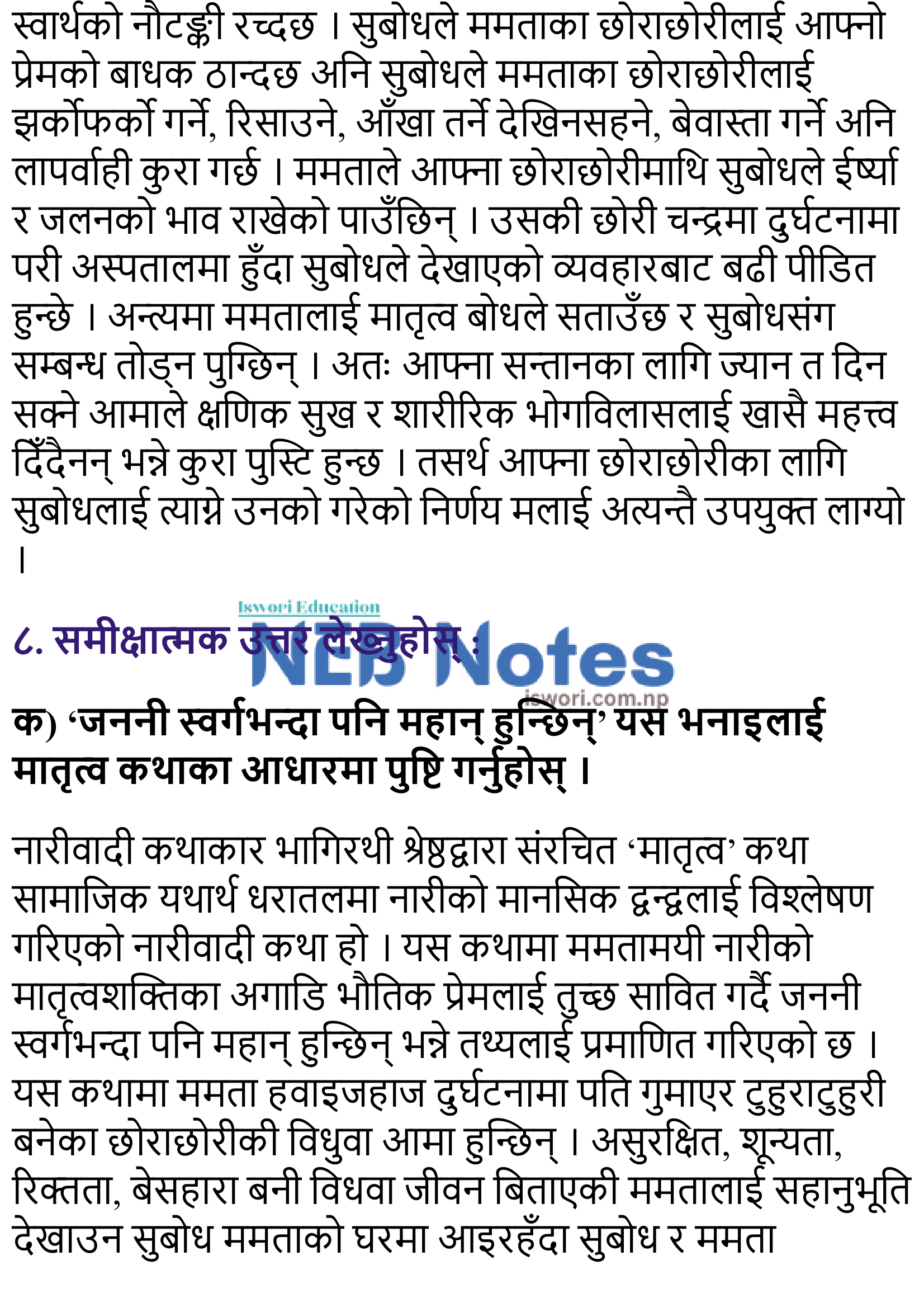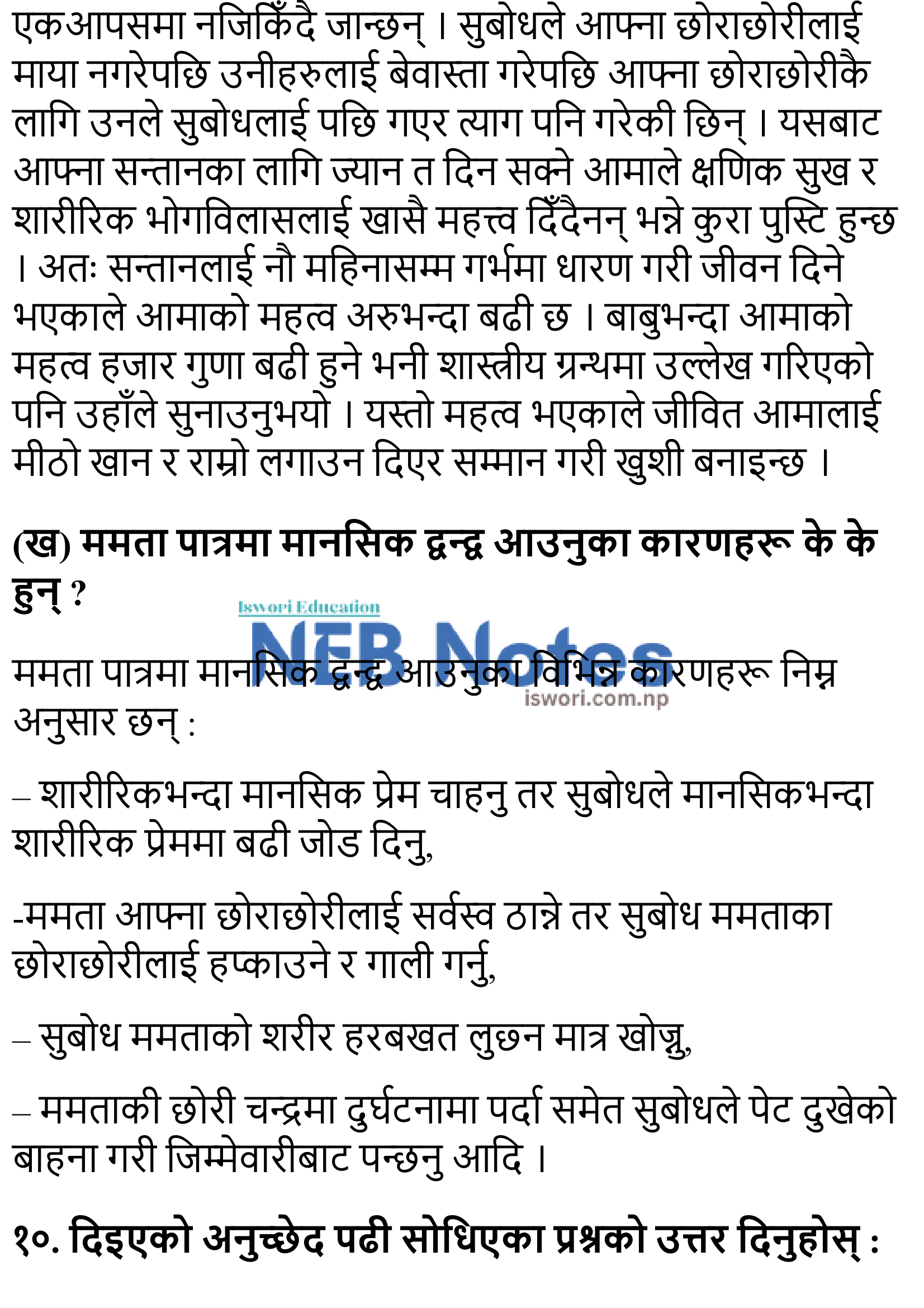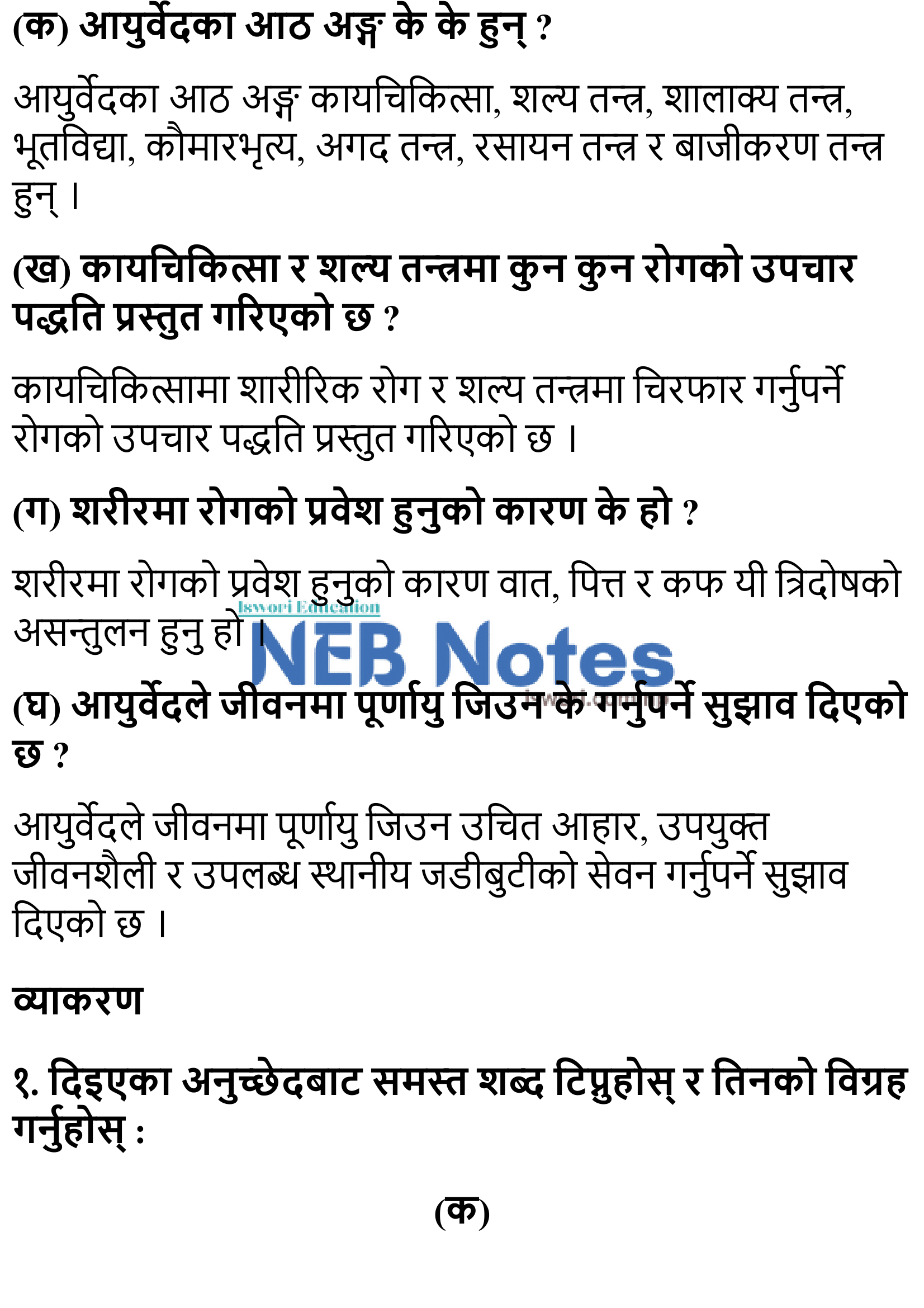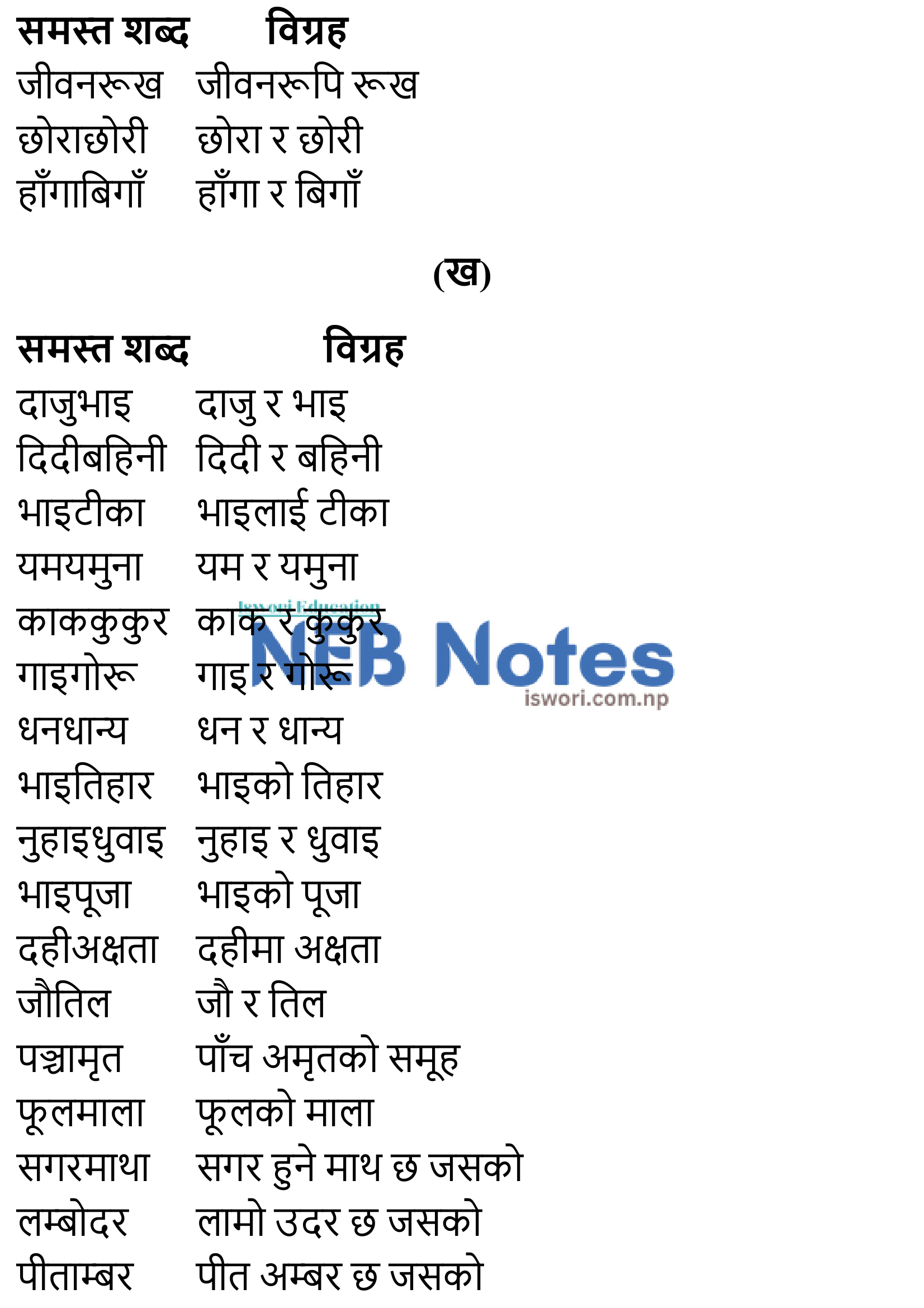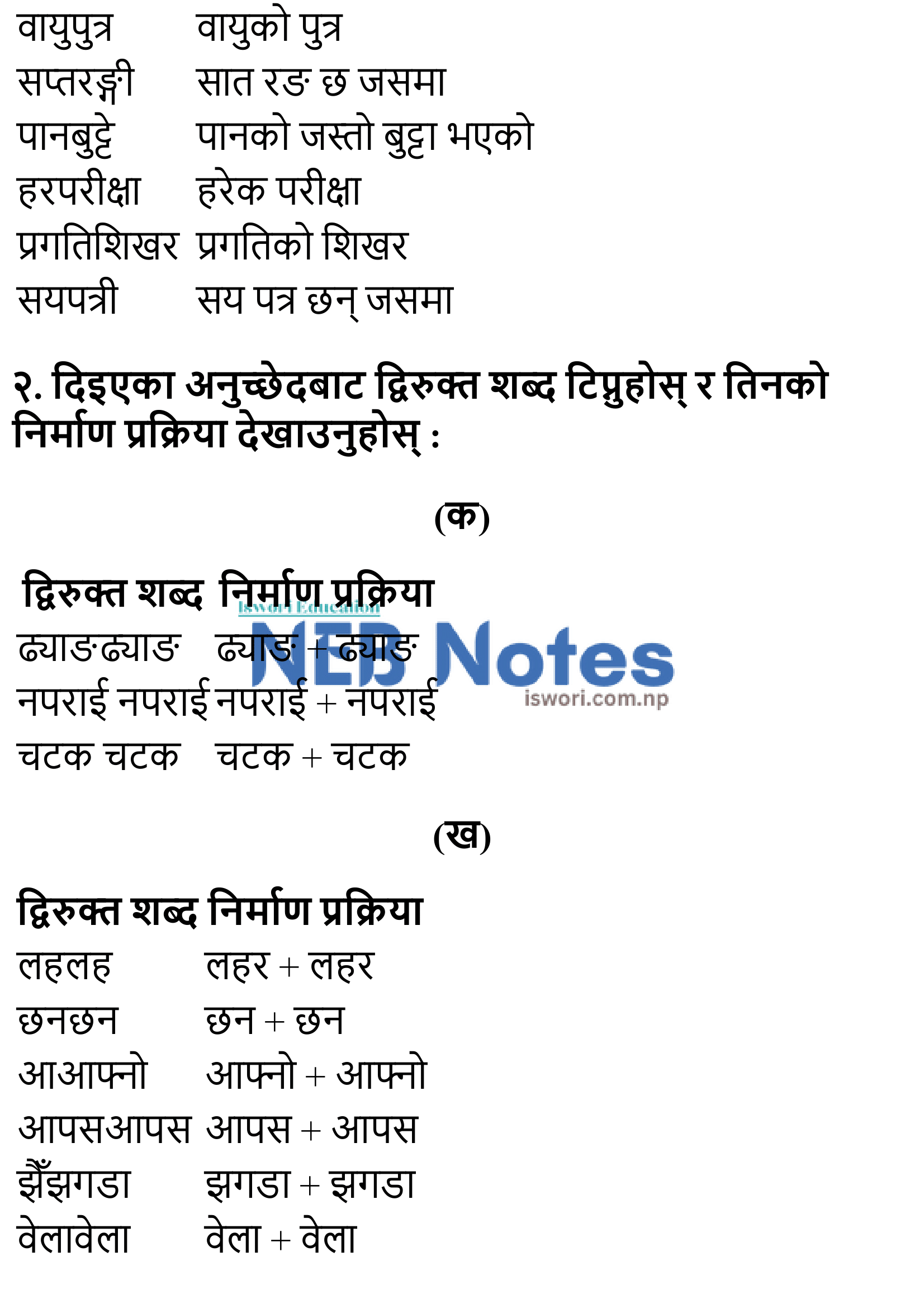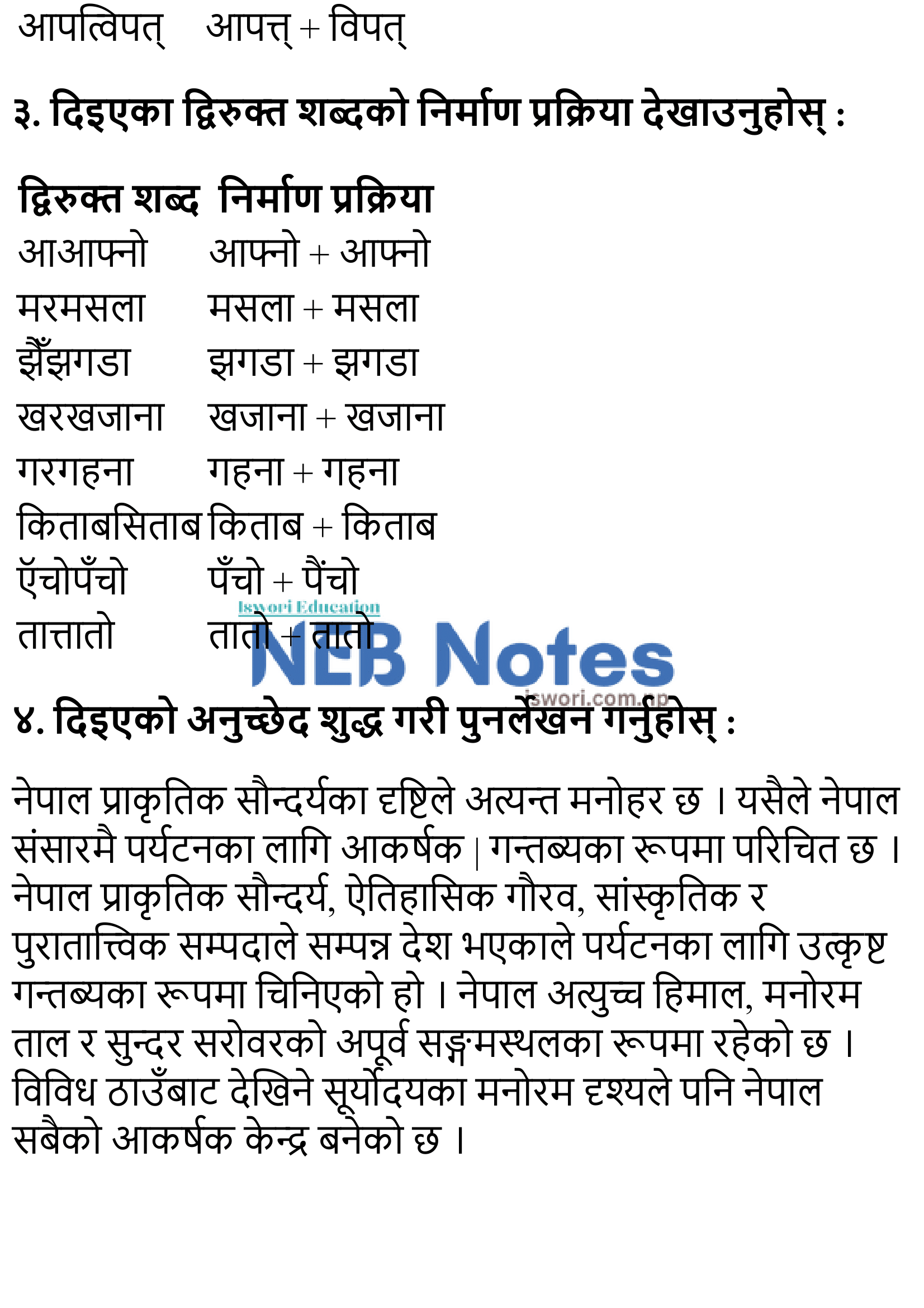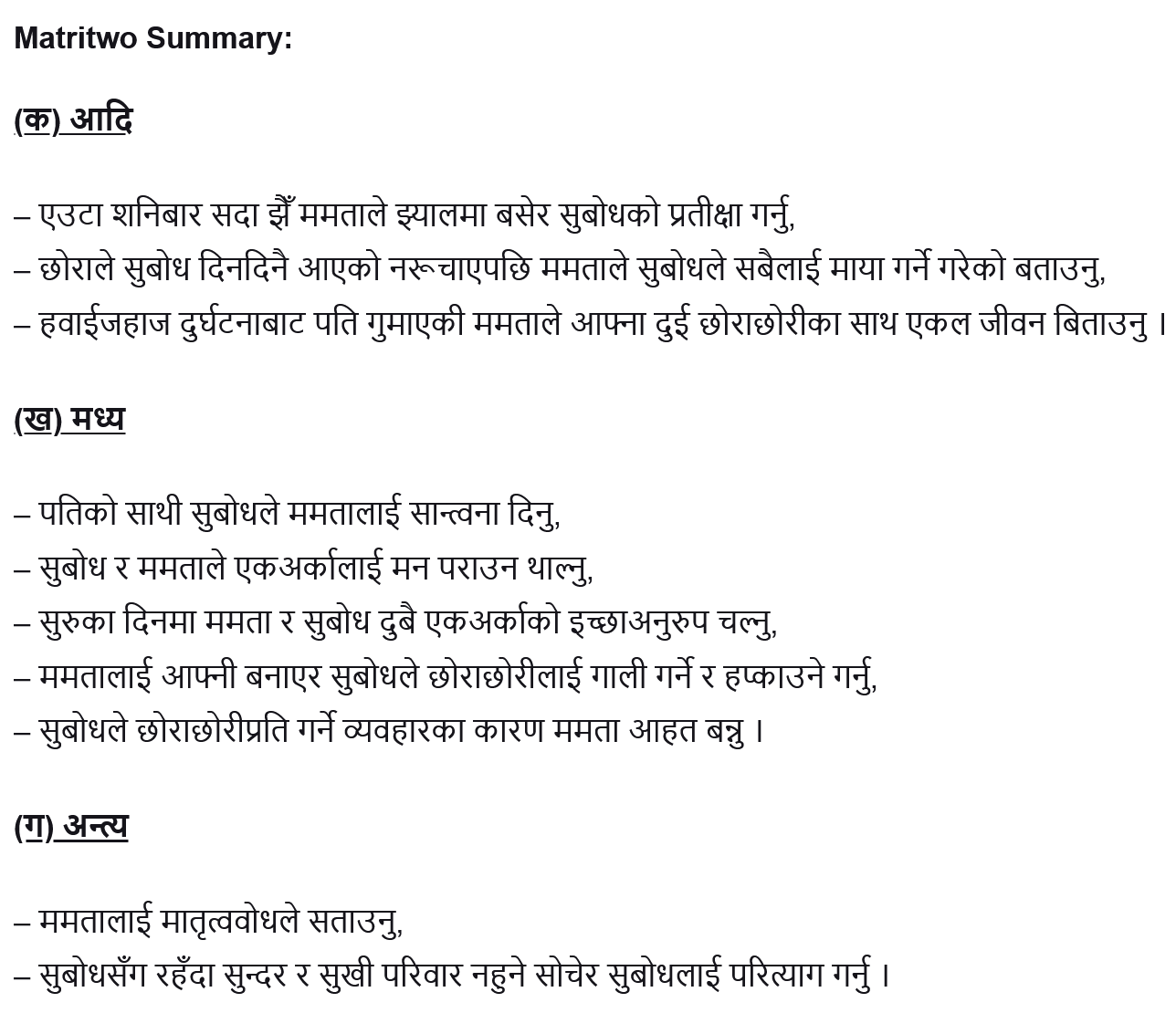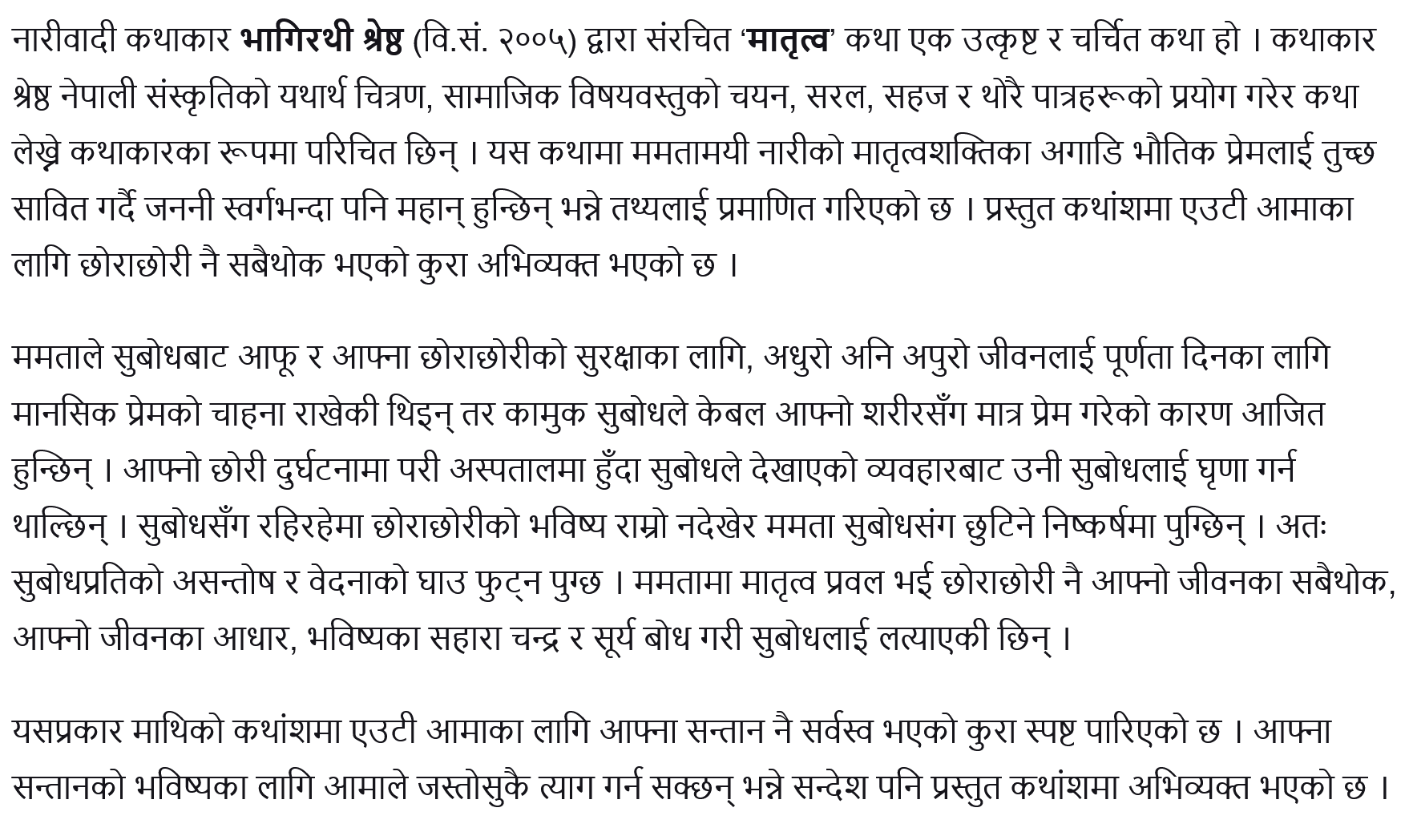Class 12 Nepali Chapter 8 Exercise: Matritwo
Matritwo's by Bhagirathi Shrestha addressed women's inner issues through the perspective of societal reality, demonstrating that mother is greater than heaven.
Class 12 Nepali Guide 2080 Chapter 8 Matritwo Complete Exercise Question Answer solution note with summary.
Sabda Bhandar
Bodha ra abhivyakti
Byakaran
Class 12 Nepali Chapter 8 Exercise Matritwo Pdf
Pdf is given as:Matritwo Summary:
Nepali Part-wise Summary
English Part-wise Summary
(A) Summary of the First Part
- Mamata is waiting for Subodh at the window,
- The son disliked seeing Subodh every day,
- Subodh assures Mamta that he loves her children,
- Mamata lives alone with her two children after losing her husband in a plane tragedy,
(B) Summary of the Middle Section
- The growing affection between Subodh and Mamta,
- Even though Mamata and Subodh respected each other's desires in the beginning, later Subodh used to abuse and scold her children,
- Mamata is concerned about Subodh's attitude for her children,
(C) Summary of the Final Section
- Mamata will be tortured by motherhood,
- Abandoning Subodh after discovering that motherhood was hindered by his presence,
Nepali Summary
English Summary
Bhagirathi Shrestha's feminist storyteller in her story ' Motherhood ' ( In Nepali : Matritwo ) explored women's inner conflicts from the perspective of social reality and demonstrated that mother is higher than heaven.
Subodh and Mamata become closer in this story as He sympathize with Mamata, the lonely mother of an orphaned kid who lost her spouse in a plane tragedy.
She wanted Subodh's love to complete her unfulfilled existence, to provide security and guardianship for herself and her children, but He fell in love with her body not with her soul.
She grows to hate Subodh for the cruel and harsh treatment she has showed her daughter, even when she is in the hospital.
Subodh was physically thirsty, wanting to play with a single woman's body without mercy, love, or compassion. A connection with Subodh might be difficult in such a circumstance. He used to consider Mamata's children as an obstacle to his love, irritating, aggressively treating, ignoring, and neglecting them. A relationship with such a ruthless individual may make life even more difficult. This would make her motherhood constantly unpleasant.
In the Story Matrittwo , Mamata chose to leave Subodh and spend the rest of her life with her two children because She knew She would never have a beautiful and happy family if She stayed with Subodh, and her motherhood would always be frustrating. So Mamata's choice 's logical to me
Read More
Keywords:
- Matrito Exercise
- Class 12 Nepali
- Matritwo Class 12 Exercise
- Matritwo Notes Grade 12
- Grade 12 Matritwo Exercise Solution
- Class 12 Nepali lesson 8
- Nepali Chapter 8 Exercise Class 12
Other Chapter Notes
- Chapter 1: Aamako Sapana
- Chapter 2: Birahini Damayanti
- Chapter 3: Ghanaghasya ko ukalo katda
- Chapter 4: Byabasayik Patra
- Chapter 5: Ek chihan
- Chapter 6: Stephen William Hawking
- Chapter 7: Hamilai bolauchan Himchuli
- Chapter 8: Matritwo
- Chapter 9: Gorkhe
- Chapter 10: Nepali Pahichan
- Chapter 11: Sahakari
- Chapter 12: Jiban Marga
Frequently Asked Questions ( FAQs)
What is the central theme of the chapter "Matritwo"?
The central theme of the chapter "Matritwo" revolves around motherhood, societal realities, and the conflicts faced by women. It explores the challenges and complexities of being a mother in the context of relationships and societal expectations.
Who is the author of the chapter "Matritwo"?
The author of the chapter "Matritwo" is Bhagirathi Shrestha.
What is the significance of the title "Matritwo"?
The title "Matritwo" translates to "Motherhood" in English. It signifies that the chapter focuses on the experiences and struggles of mothers, shedding light on their emotions, conflicts, and roles in society.
How does the story portray the relationship between Mamata and Subodh?
The story portrays the relationship between Mamata and Subodh as initially sympathetic and supportive. However, over time, Subodh's behavior changes, and he becomes abusive towards Mamata's children. This shift in dynamics creates tension and conflict in their relationship.
What prompts Mamata's decision to leave Subodh?
Mamata's decision to leave Subodh is driven by her realization that his presence is hindering her ability to fulfill her role as a mother. She recognizes that Subodh's attitude and mistreatment of her children are negatively impacting her motherhood experience.
How does the story address feminist perspectives?
The story "Matritwo" is considered a feminist narrative because it delves into the inner conflicts faced by women within the context of societal norms and expectations. It emphasizes the importance of a mother's role and challenges traditional gender dynamics.
How does the story highlight the conflict between personal desires and societal expectations?
The story highlights this conflict through Mamata's internal struggle. She desires love and companionship from Subodh, but she also recognizes her responsibility as a mother. The story showcases how societal expectations can clash with personal desires, leading to difficult choices.
What does the phrase "mother is greater than heaven" mean in the context of the story?
The phrase "mother is greater than heaven" suggests that a mother's role and sacrifices surpass even heavenly concepts. It underscores the immense significance of motherhood and the challenges that come with it.
How does Bhagirathi Shrestha use character development to convey the story's themes?
Bhagirathi Shrestha develops the characters of Mamata and Subodh to convey the themes of the story. Mamata's internal conflict and her prioritization of her children's well-being over her own desires reflect the theme of motherhood. Subodh's changing behavior highlights the complexities of relationships and societal expectations.
What is the impact of Subodh's mistreatment of Mamata's children on her decision-making?
Subodh's mistreatment of Mamata's children becomes a crucial factor in Mamata's decision to leave him. It reinforces her realization that her role as a mother is being compromised, leading her to choose her children's well-being over her relationship with Subodh.
